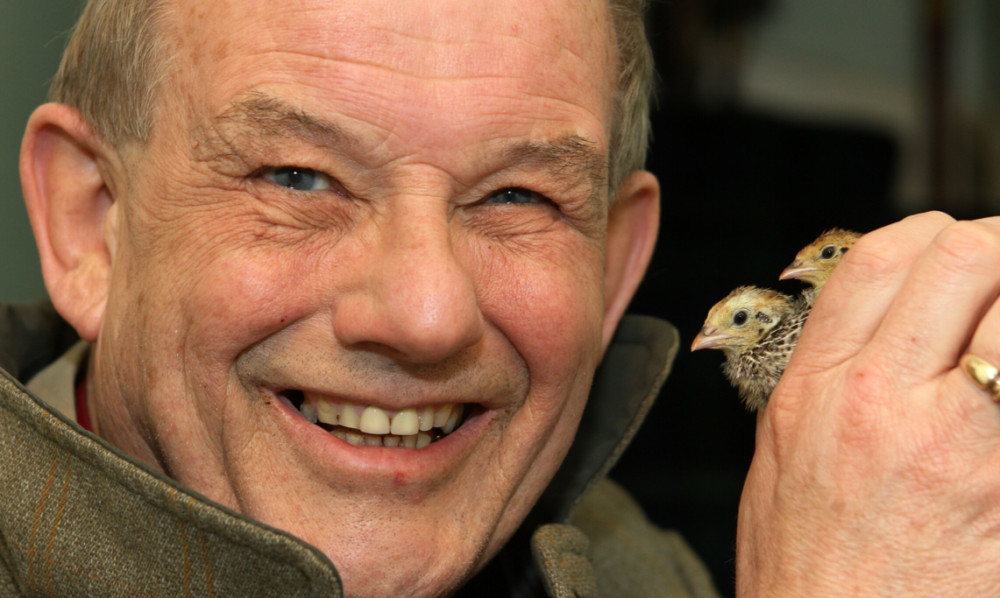A Dundee man striving for the Good Life has successfully hatched his first batch of quail eggs in the airing cupboard.
Alan Calder-McNicoll, 64, is more used to working with lions in Zimbabwe where he sometimes volunteers at a project which protects the big cats.
But he has recently turned his attention from felines to feathered friends, rearing quails in his home for their eggs.
“I started keeping them in September last year when I bought some adult quails from a guy in St Andrews,” Alan said. “I decided to try my hand at it just as a bit of fun.
“I intended to get a proper incubator, but I found one guy on the internet had hatched out some in a plastic sandwich box in the airing cupboard.”
The nature enthusiast started with eight eggs but after ‘candling’ them, he discovered only six of them had a chance of hatching.
He said: “I candled them to check if they were fertile. You hold a light behind the egg in a dark room and if the egg’s dark there’s a chick.
“If it’s light there’s nothing in it. There were six fertile and two of them hatched.”
But it was a tense wait for Alan as his precious eggs went beyond their due date.
“It’s supposed to take 17 days,” he said. “It’s notoriously difficult without a proper incubator because they’ve got to keep at the proper humidity.
“On the 17th day they hadn’t hatched but on the Friday when I came home, lo and behold there were two little babies walking about.”
The chicks are too young for Alan to tell if they are male or female but he has already christened them.
He said: “I’ve called them Worcester and Jeeves because I’ve a Worcester boiler in the airing cupboard.”
With his little chicks having moved from the hotpress to a cage in the hallway, Alan is now planning on becoming self-sufficient.
“They are for my own use. The eggs I sell very cheaply to cover the cost of their food. I go back to Africa on Saturday but when I come back I intend to get a proper incubator and rear them properly.”
Alan is returning to Antelope Park in Gweri, Zimbabwe, to witness the steps being taken to protect the African lion.
Twenty years ago the species had over 220,000 in the wild but it is now estimated to have dropped to only 20,000.
Alan previously volunteered for a month through African Lion and Environmental Research Trust and helped reintroduce lions into their natural environment.
When he returns, though, he plans to get right back to chick-hatching.
“The temperature is critical,” he said. “It has to be 36C when you’re incubating quails eggs. It just so happens when I took the thermometer to the airing cupboard after they had hatched the temperature was 36C.”
